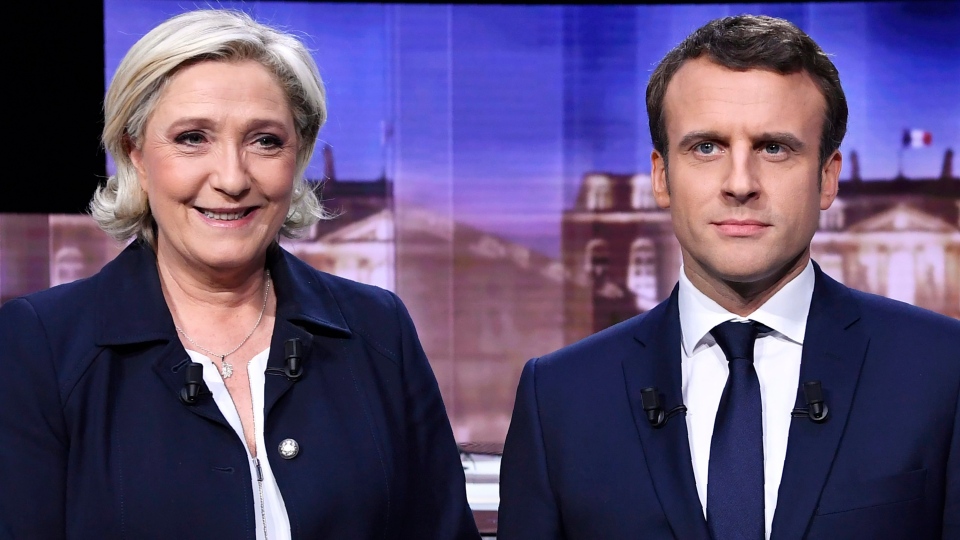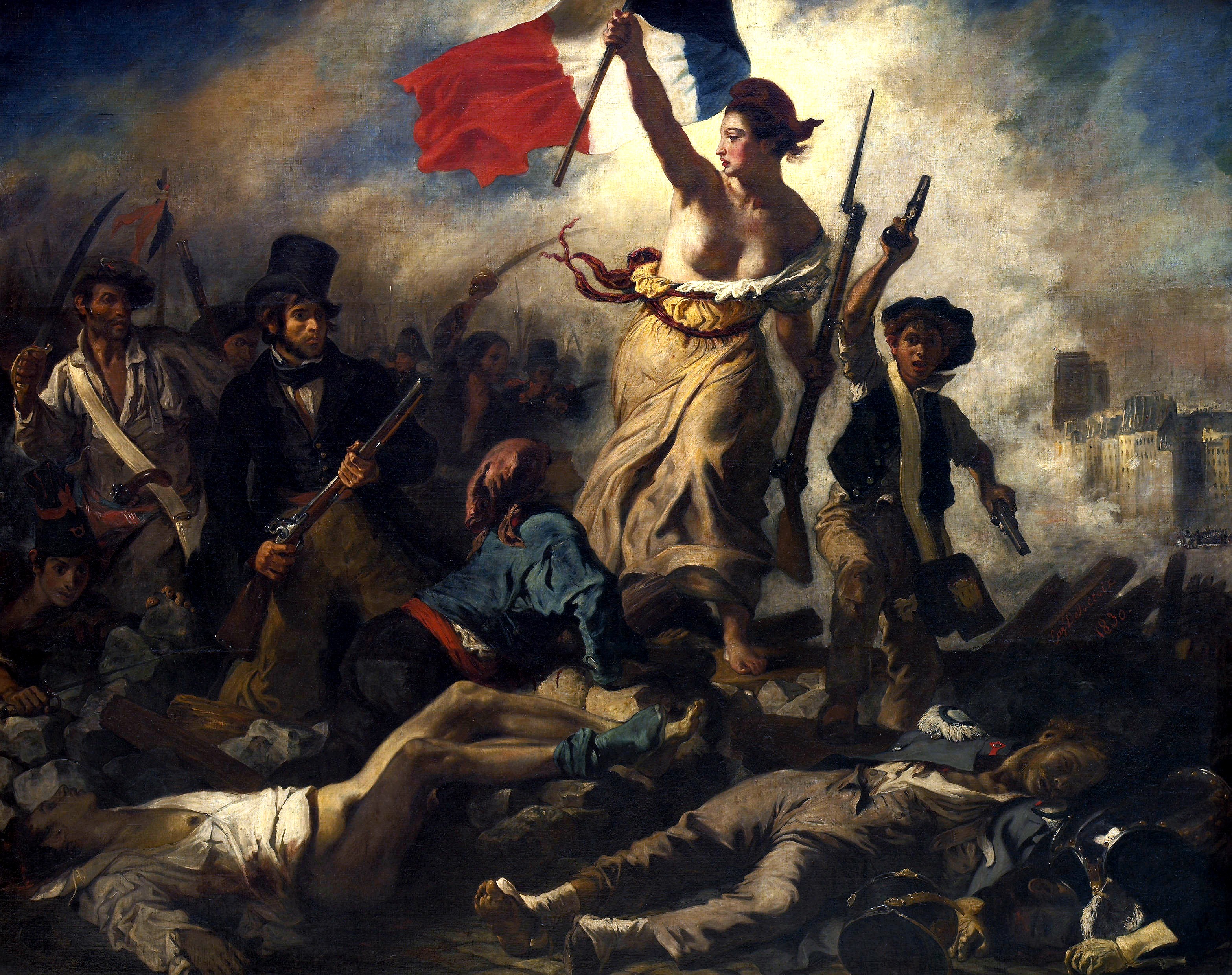“The center cannot hold…the best lack all conviction, while the worst are full of passionate intensity.” Though these lines from Yeats prescient poem “The Second Coming,” penned in 1919, are often cited in these dark times, I’m pondering the poem as a whole on the eve of the election in France.
 “The Second Coming” is unflinchingly pessimistic, the antipode of its title. Even so, it echoes from the past through the present more as warning than prophecy.
“The Second Coming” is unflinchingly pessimistic, the antipode of its title. Even so, it echoes from the past through the present more as warning than prophecy.
It looks like the center will hold in France, and the ultimate centrist and status quo candidate, the former Rothschild investment banker, Emmanuel Macron, will vacuum up enough support from the center left and center right to become president.
If Le Pen wins however, it will mean the foundations and frameworks of Western civilization have become so rotten that the birthplace of the Enlightenment will reverberate with its death knell.
Here’s a good example of Le Pen’s excremental xenophobia, which channels an admixture of nativism, fear and hatred paralleling the attitudes of Trump and his rabid base: “Just watch the interlopers from the world come and install themselves in our home. They want to transform France into a giant squat.”
On the other hand, the empty suit Macron utters jejune things like: “The French are not Islamophobic, but radical Islam is scary.”
While autocracy is the historical condition in Russia, China, Turkey and other lands, the discontent with political parties and the European Union cannot adequately explain why mob rule (euphemistically called populism) is sweeping Europe.
Some pond skaters put the deep dissatisfaction in economic terms, and speak of the French vs. American work ethic. They say the problem with the French is that they have a job-protecting uncompetitive economy, and need to be more like America, with its job-producing competitive economy.
They give their facile diagnosis with false certainty: “Chronic economic stagnation inevitably begets nationalist furies.” And, “the French are nostalgic for an ideological, utopian communism, which never existed.”
Hogwash. Both the French “work to live” and the American “live to work” models have produced the same overwhelming culture of anomie, rife with inchoate fears of the other. About 40% of the citizenry in both countries is opting for the simplistic solutions of the strongman or the strongwoman.
If France buys the West a little more time to deal with its decay, what should thinking/feeling people use that time for?
Certainly not to shore up discredited liberal democracies and the decrepit neo-liberal system. They are past their historical due dates.
The Enlightenment premises and ideals of reason, progress, gradualism and the perfectibility of man are finished. The question is, what will take their place?
Reactionaries in America say, “The faith in the West collapsed from within,” and lament “how slow people have been to rise to defend it.” Why should we rise to defend what has collapsed from within?
Rather than face the limitations of reason, and the internal contradictions of the Judeo-Christian tradition (not to mention the rampages against indigenous peoples, the ravages of slavery, and the revulsions of colonialism), intellectuals bemoan the “lost faith in the Western civilization  narrative.”
narrative.”
We’ve had a good run in the West. Most of the scientific and material progress of humankind came out of the Enlightenment and the Scientific Revolution.
But the values and verities that underwrote the Western mind, giving rise to the American and French Revolutions, no long obtain. The center cannot hold when the foundation has eroded beyond repair.
We cannot halt the unstoppable churn of the global economy and society. In addition to man’s tribalistic roots in identifying with particular groups, nationalism is a reaction to the cultural and psychological fact of globalization, and the failure of the intelligentsia to meet it.
Economic dislocation and disruption are real of course. The gap between the beneficiaries of globalization and the many who are not benefiting from it is growing, whether we live in America, France or India. However the problem cannot be adequately addressed at that level, or the political level.
Clearly there must be radical change at all levels—in the individual, society and human consciousness. But psychological revolution cannot happen by thinking in terms of time. And the Enlightenment ideals and hopes of the gradual betterment and perfectibility of man are based on time.
Ideals and psychological time are the great enemies of humanity. When we end, deep down, the ideal of progress and gradual perfectibility, and see that reason has to follow and not lead insight and understanding, we feel tremendous urgency and have the capacity to respond.
Is this the real meaning of greatness, the antidote rather than the antipode?
Martin LeFevre
Link: https://www.poetryfoundation.org/poems-and-poets/poems/detail/43290

